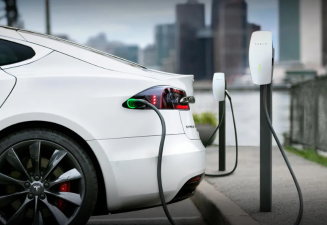With the increasing global attention to environmental protection and sustainable development, the electric vehicle industry was once regarded as a "golden land" for investment. However, in recent years, some start-up electric vehicle companies have fallen into trouble and even reached the brink of bankruptcy. In June this year, Lordstown Motors (RIDEQ) filed for bankruptcy protection, which aroused the market's high attention to the future development of the electric vehicle industry.
With the increasing global attention to environmental protection and sustainable development, the electric vehicle industry was once regarded as a "golden land" for investment. However, in recent years, some start-up electric vehicle companies have fallen into trouble and even reached the brink of bankruptcy. In June this year, Lordstown Motors (RIDEQ) filed for bankruptcy protection, which aroused the market's high attention to the future development of the electric vehicle industry.
Lordstown Motors' bankruptcy is not an isolated case. In fact, analysts point out that start-up electric vehicle companies such as Rivian Automotive (RIVN), Polestar Automotive (PSNY), Lucid Group (LCID) and Fisker (FSR) are facing similar difficulties. These companies are far from profitable, and the speed of burning money may threaten their viability.
Tianyancha app data shows that these start-up electric vehicle companies have received a lot of investment in the past few years, but they have difficulty in making profits due to fierce market competition, difficult technology research and development, and high production costs. At the same time, these companies have also accumulated a lot of debt during the expansion process, further exacerbating their operating pressure.

It is worth noting that competition in the electric vehicle market is becoming increasingly fierce. Traditional automakers such as GM, Ford, and BMW have increased their investment in the electric vehicle sector, while leading companies such as Tesla have continued to expand their market share. In this context, the survival space of start-up electric vehicle companies has been severely squeezed.
For start-up electric vehicle companies, in order to gain a foothold in the fierce market competition, they must have unique technological advantages and brand influence. However, from the current situation, many start-up car companies have obvious deficiencies in both aspects. They often lack independent research and development capabilities and rely on external technology supply, resulting in serious product homogeneity. At the same time, they also invest insufficiently in brand building, making it difficult to form unique value recognized by consumers.
Faced with the plight of start-up electric vehicle companies, investors and market observers have begun to re-examine the investment value and risks of this industry. Some experts believe that the technical threshold and market risks of the electric vehicle industry cannot be ignored, and investors should be more cautious in making decisions. For start-up car companies themselves, how to find their own positioning and development path in the fiercely competitive market will be the key to their future survival and development.
In short, the wave of bankruptcies of start-up electric vehicle companies reveals the brutal competition and survival pressure in the electric vehicle industry. Faced with market challenges and uncertainties, these companies need to make positive efforts in technological innovation, brand building and capital operation in order to stand out in future market competition













